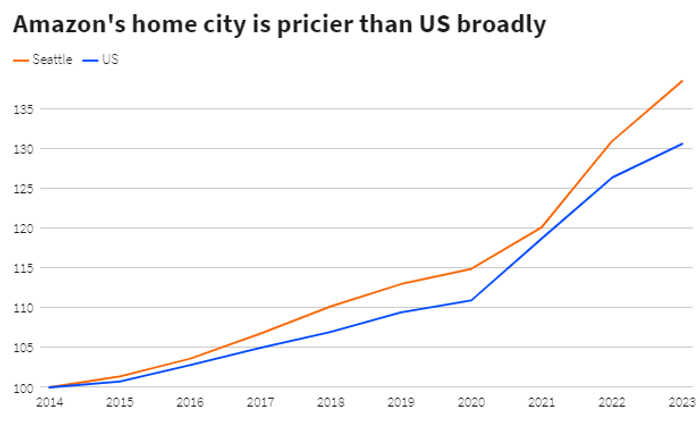Published 08:22 IST, September 21st 2024
Amazon’s office mandate reflects deeper banality
From homegrown projects like virtual assistant Alexa to acquisitions such as grocery chain Whole Foods, Amazon has lost its inventive spark.
- Opinion
- 2 min read

Back-order. Remember HQ2? Amazon.com’s 2017 quest to expand its North American base beyond Seattle sparked a circus-like courtship to host as many as 50,000 high-paying jobs. The new location in northern Virginia hasn’t lived up to the hype, but there may be hope for it yet after Chief Executive Andy Jassy ordered everyone back to the office five days a week. The woeful lack of imagination, though, is indicative of bigger problems.
Jassy told staff this week that working from home will end next year, with few exceptions. The $2 trillion company also is dispensing with shared desks in favor of assigned seats at locations where it was previously the norm. The boss makes no apologies about turning back the clock: “Before the pandemic, it was not a given that folks could work remotely two days a week, and that will also be true moving forward.”
The problem is that times have changed. For one thing, the cost of living in and around Seattle has grown faster than the rest of the country. Hiring at the initial HQ2 site sputtered short of the initial target and construction of phase two was delayed. Layoff plans also have not endeared the company to the community.

In the meantime, a new generation entered the workforce during the pandemic. They want facetime with colleagues, but also value working remotely, according to research from Handshake, which helps college students find jobs. It’s important that employers consistently reassess collaboration and culture. For technology companies especially, which used food and foosball to get a leg up on recruitment, cutting-edge virtual reality and artificial intelligence provide new opportunities to do so.
Amazon has lost its inventive spark, however. From homegrown projects like virtual assistant Alexa to acquisitions such as grocery chain Whole Foods, it has largely been a decade of disappointment. The banality is evident in a stock price that has significantly underperformed those of Alphabet and Microsoft, and barely exceeded Walmart’s over the past five years. Jassy says he wants the company “to operate like the world’s largest startup,” consistently wowing customers. Reviving workplaces from a bygone era is not an encouraging way to start.
Updated 08:22 IST, September 21st 2024